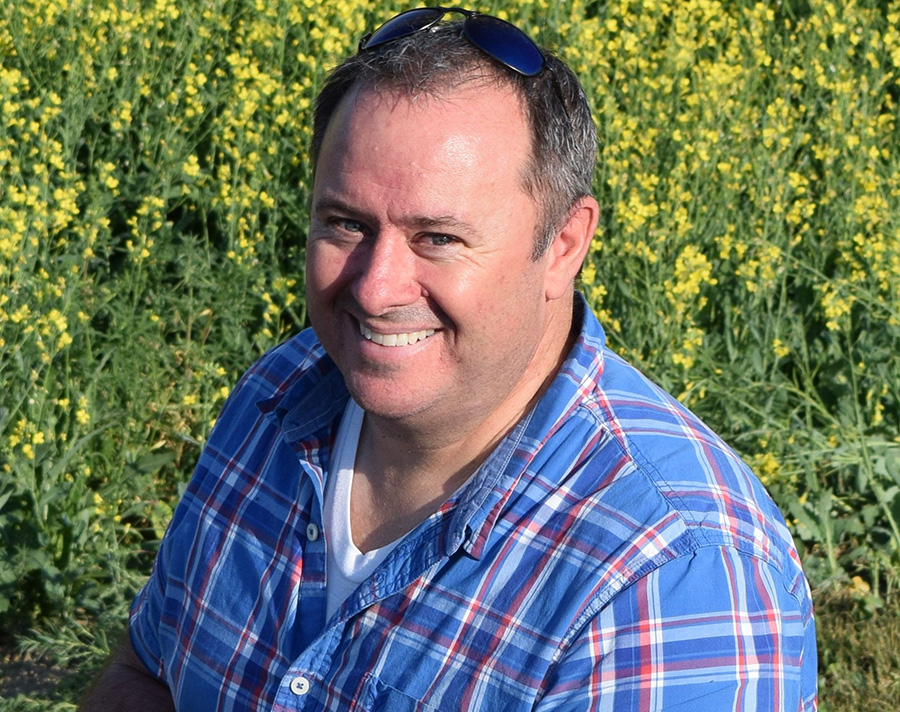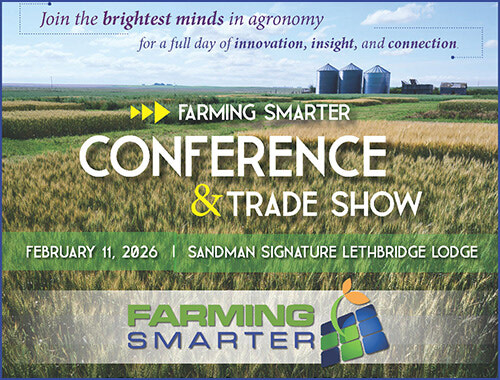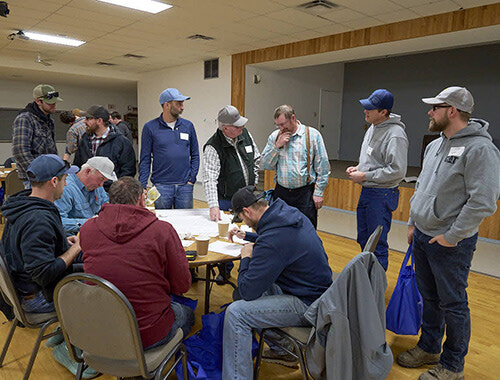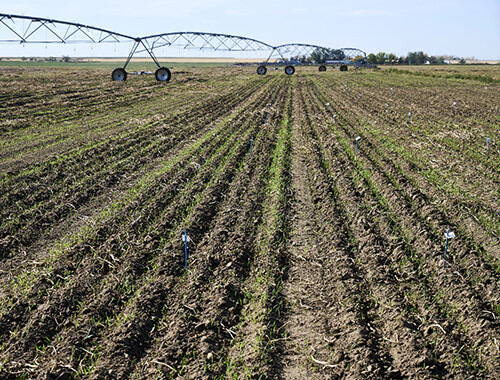By Craig Lester, Rural Roots Canada
As Southern Alberta’s cropping season kicks into full gear, producers will have an opportunity to sharpen their agronomic knowledge at the Farming Smarter Field School this June 25 & 26.
With hands-on demos, research updates, and practical takeaways, the annual event is one of Alberta’s most valuable crop learning experiences.
Among this year’s presenters is Mike Harding, plant pathologist and Crop Assurance Lead with Alberta Agriculture and Irrigation. Harding is sounding the alarm on cereal diseases that don’t respond to typical fungicide strategies. While most growers are familiar with leaf spots and root rot, Harding’s session will dive into lesser-known but increasingly relevant threats like bacterial leaf streak, wheat streak mosaic, and barley yellow dwarf.
|
|
|
Dr. Mike Harding in front of a field of canola during a Farming Smarter event in 2014. He returns to discuss early signs of bacterial & viral diseases in canola and what you can do to stop it! Join us at the Farming Smarter 2025 Field School to learn these skills and much more! |
“We can’t manage those diseases the same way we manage fungal diseases that occur in the soil and that cause leaf spots,” says Harding. “What I’ll be speaking about is being aware of, and looking for, symptoms, and being able to identify symptoms that may be caused by bacteria and viruses.”
Unlike fungal infections, bacterial and viral pathogens can’t be controlled with fungicides, meaning misdiagnosis can lead to wasted input costs and lost yield. Harding will stress to producers not to rely on routine but to recognize and understand new strategies.
Meanwhile, Robyne Davidson, a pulse research scientist at Lakeland College, will introduce producers at the Field School to lupin, a high-protein pulse crop that has sparked considerable research interest in Alberta, particularly in central Alberta.
“We know that it has great potential in the feed market, in the food market, and a number of other markets as well,” she says. “It’s very well suited to central Alberta and to the black soil zones, neutral pH, and where we get lots of rain.”
Another benefit of lupin is its resistance to Aphanomyces, which can cause considerable damage to pulse crops. “If we can bring in an alternative crop to farmers that can no longer grow field pea and lentil, that’s another reason to consider it,” adds Davidson. That said, she cautions it will be a slow process to expand commercial acreage of lupin in Alberta, which need lots of water to grow in a province that’s no stranger to drought. Davidson’s goal at this year’s Field School is to spark interest, not overpromise.
Potatoes will also be on the agenda this year. Lewis Baarda, who manages Farming Smarter’s field-tested research program, will deliver insights from their first year of potato agronomy trial. Potatoes represent a major departure from the usual broad-acre crops, requiring new gear, methods, and mindsets. However, Baarda sees big opportunity and big growth.
“Alberta is a great place to grow potatoes,” says Baarda. “We grow more potatoes here than in Eastern Canada, and expansion is continuing. This could be Canada’s potato production region. What’s great about southern Alberta is that we can grow potatoes while still being incredibly diverse in our cropping system. Our irrigation, warm summer weather, and well-drained soils put us in a good spot.
At the Field School, Baarda plans to highlight the importance of research in the potato space. “It’s a high-value crop, produces very well, and I think farmers have done very well with it,” he says. “We got our feet wet last year. We did a number of trials for several clients, and we’ve got new things coming down the line that we’re excited to learn, things that are going to apply to all potato growers.”
Harding, Davidson, and Baarda make up only a handful of the speakers and educators scheduled to take part in this year’s Farming Smarter Field School. It's a field-level think tank offering farmers hard-earned knowledge they can take right back to their own fields.
To learn more, you can visit the event page on our website or click the button down below!
|
|
| The Farming Smarter 2025 Field School is your opportunity to learn about the latest agronomical updates and hear about fantastic, upcoming developments to the industry in southern Alberta! Join the conversation about novel and specialty crops, combating herbicide resistant weeds, and methods to optimize your soils like water management for saline soils. |





